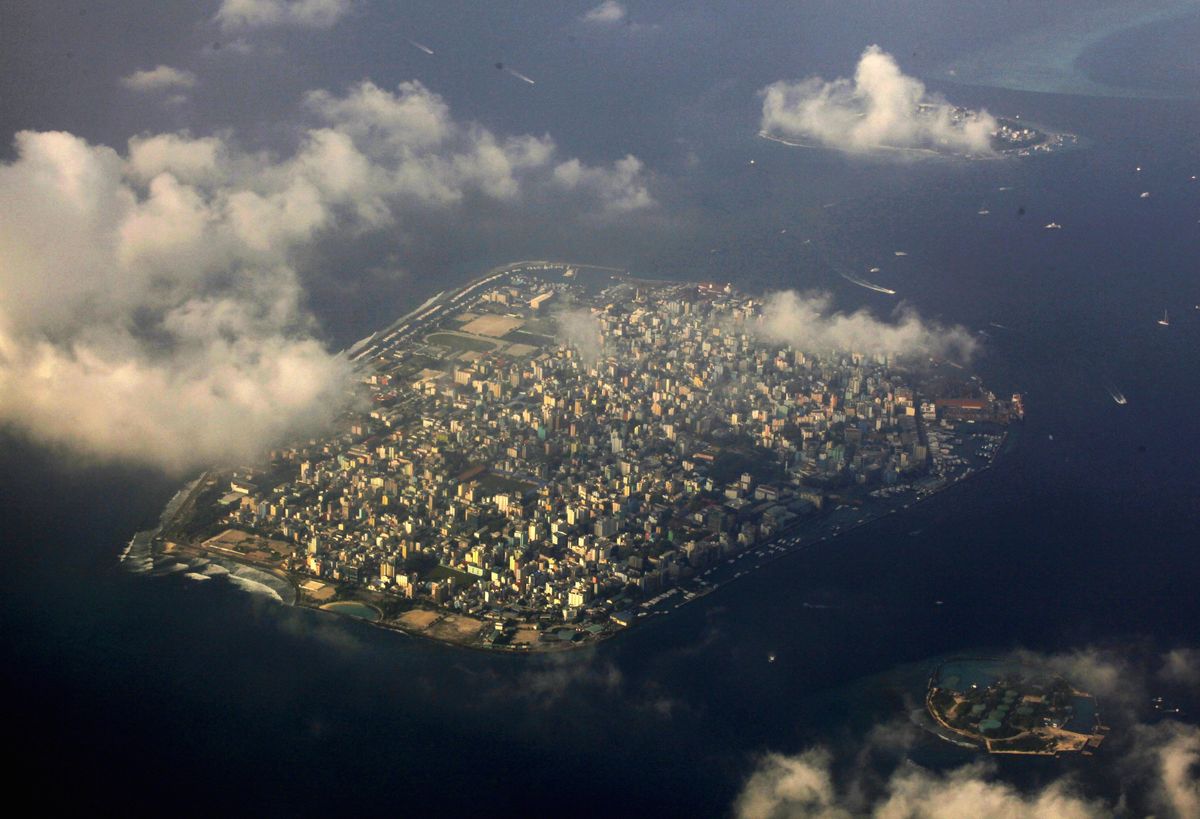Most of the world thinks of the Maldives as either a dream vacation spot or one of the first countries likely to slip beneath the waves as climate change raises sea levels.
But the governments of China and India think of the Maldives as a strategic prize in their intensifying competition with one another.
That’s because this nation of 520,000 people spread across nearly 1,200 coral islands spanning 35,000 square miles of the Indian Ocean straddles East-West shipping lines of vital interest to both countries.
On Saturday, voters in the Maldives will head to the polls for a second-round presidential runoff featuring President Ibrahim Mohamed Solih, who has favored closer ties with India, and opposition candidate Mohamed Muizzu, who argues for better ties with China. Both countries have invested hundreds of millions in infrastructure projects across the archipelago nation in hopes of boosting their influence with its government.
This weekend’s election is just the latest chapter in a long-running story of great-power competition.
Both candidates say they favor good relations with both giant neighbors, but Muizzu has scored political points by accusing Solih of inviting Indian forces onto Maldives territory. For now, Muizzu is favored to win.






